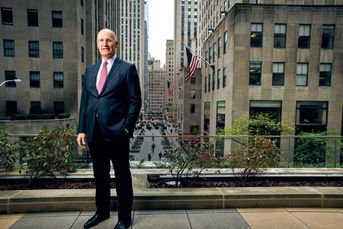What does Wells Fargo want to be?
In what seems to be a strategic about-face, Wells Fargo & Co. has decided to turn the also-ran investment banking business of recently acquired Wachovia Securities (nee Prudential, Bache, A.G. Edwards, Wheat First, et. al.) into a major Wall Street powerhouse.
In what seems to be a strategic about-face, Wells Fargo & Co. has decided to turn the also-ran investment banking business of recently acquired Wachovia Securities (nee Prudential, Bache, A.G. Edwards, Wheat First, et. al.) into a major Wall Street powerhouse.
“We have an enormous opportunity to become one of the top customer-focused investment banks,” John Stumpf, Wells Fargo’s chief executive, boasted on Monday, according to published reports
If he can pull it off, more power to him. Wells Fargo’s shareholders may even benefit if Mr. Stumpf doesn’t fall into the trap of spending so much money to lure top talent that very little falls to the bottom line.
But I think Mr. Stumpf should examine the logic of his statement. Is there really such a beast as a “customer-focused” top investment bank?
I doubt it.
It’s really a matter of brain power vs. horsepower.
Unlike boutique investment banks such as Evercore Partners or Sandler O’Neill, whose competitive advantage lies in providing customers with unusual financing ideas, large investment banking firms rely on their ability and willingness to commit huge sums of capital to underwriting and/or trading.
Mr. Stumpf clearly isn’t interested in the small, brainy model of banking. He wants to be the next Morgan (the JP or the Stanley variety) or maybe even Goldman.
But those goliaths are not customer-focused in the way most people think of the term.
For sure, when an investment banking firm does an underwriting, it tries to get the best price for the issuer. But I doubt bankers would turn down an underwriting even if they believed it was not in the customer’s best interest.
And I can say with 100% conviction that Mr. Stumpf did not have the retail-securities customers in mind when he made his “customer-focused” statement.
The retail arms of major investment banks are always considered a distribution outlet for underwriting, not the primary focus of the firm. Given a choice of sticking it to a corporate issuer or to Mr. or Ms. Average Customer, you know who would get the short end.
Finally, most large investment banking firms are now proprietary trading machines because there’s little money to be made serving either corporate giants or average investors.
The big money is in being a principal, doing private-equity deals and betting against the behemoths on the buy side.
Any way you look at it, I can’t see where the customer focus comes into play.
Learn more about reprints and licensing for this article.







